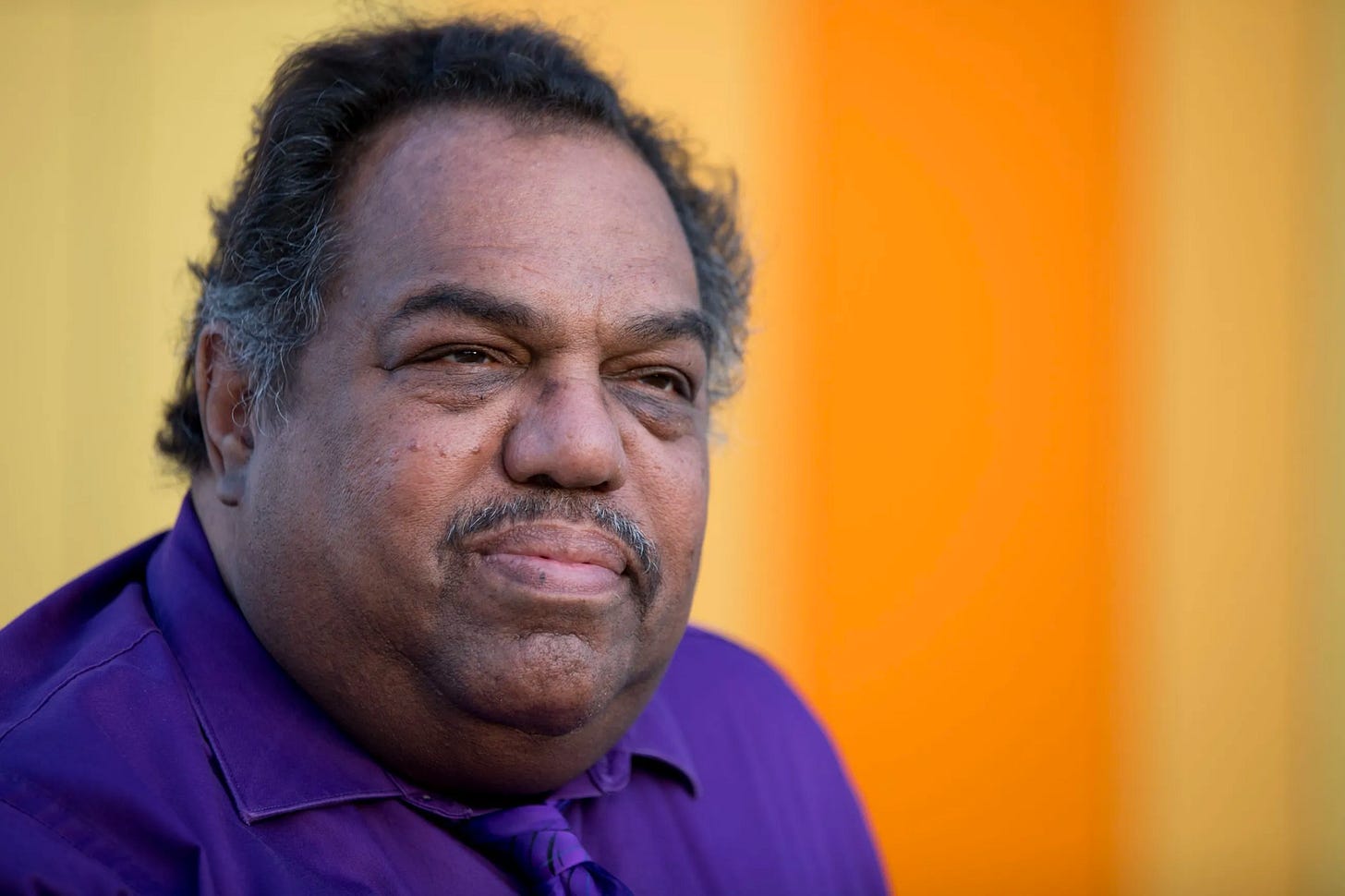"Cultural appropriation" isn't real. It's just culture
This week on our Substack, Franklin Einspruch writes that while the conversation around “cultural appropriation,” has been around for many years, “we’re no closer to a sensible definition” of the term. Einspruch examines a definition provided by Porter Braswell in an article for Fast Company.
“Cultural appropriation” is hard to define because it isn’t real. A given culture joins the people who engage seriously in that culture… Culture can, however, be copied, emulated, and adapted—with varying levels of success and sensitivity. If someone adapts the culture with which you affiliate, and the results are cynical, hollow, frivolous, or “cringe,” it is reasonable to feel distaste. But the result hasn’t failed because they “appropriated” or copied a form of cultural expression; everything is copied. It failed because its creator could not adequately cohere technique, feeling, and content. The correct descriptor, in this instance, is “bad art.”
What Western feminists can learn from Iran
For Unherd, FAIR Advisor Ayaan Hirsi Ali writes that “as huge crowds of women and men surge through the Iranian streets, burning hijabs and calling for ‘Death to Khamenei!’,” and “the prospects certainly look better than in 2009,” senior officials she has spoken to “have cautioned against blind optimism.”
Still, while the response of the West should be limited to cautious optimism, there is one other conclusion we can draw, no matter what happens: the current protests are a unique, and uniquely inspiring, phenomenon. Nowhere else in the Muslim world — and I mean, literally, nowhere else — would we see what we are seeing right now in Iran: men and women, together, standing up for each other, the men demanding justice for the regime’s murder of a woman who dared to let her hair show. It bears repeating: the men of Iran are standing alongside women as they burn their hijabs.
How to Talk About Culture Without Fueling Racism
For Free Black Thought, David Bernstein writes that “despite efforts by some progressives to suppress discussion about it, culture is an important variable in understanding group differences,” and also notes that “caution must be observed in arguments from culture, because such arguments can be used to negatively stereotype groups.”
A prominent feature of progressive ideology is suppression of discussion of the role culture plays in generating disparities among groups. According to today’s dogma, every unfavorable disparity must be a function of a “system,” i.e., imposed from the outside by powerful forces. In this view, rampant gun violence in inner city Chicago can only be attributed to systemic racism, not to any aspect of the culture of the “Wild Hundreds” of Chicago’s South Side. The same goes for disparity among countries. Post-colonialist ideology ascribes the problems of struggling nations to historic colonial rule and the remnant of such rule that supposedly continues to hold down nations or regions. Never mind that certain former colonized Asian countries, such as Hong Kong and Singapore, have thrived in the post-colonial era.
What a Conservative Therapist Thinks About Politics and Mental Health
For the New York Times, Meghan Daum interviews “Dea Bridge, a therapist in Grand Junction, Colo., who lists her services on conservativetherapists.com, which helps conservative patients find treatment with politically sympathetic professionals.”
Meghan Daum: The home page of the Conservative Therapists site says: “Half of Americans have conservative values, yet approximately 90 percent of therapists, psychologists and psychiatrists are guided by a liberal or even socialist value system, creating a barrier for conservatives who would prefer talking with a professional who supports their values.” Does that sound right to you? Do you feel therapists tend to be on the left politically?
Dea Bridge: From what I’ve seen, yes.
I’m a little careful about what I say in certain circles because I just don’t know how well my views will be received. I kind of test the room a little bit before I open my mouth too wide. My affiliations — between the military and the law enforcement communities and some of those more hard-line traditional conservative values — really are uncomfortable for some people who are not conservative.
What Do Girls Do?
For her Substack, Natural Selections, Heather Heying writes that “sex isn’t assigned at birth. Sex is observed at birth” and that this has fundamental implications for reality and how we live within it.
Females are individuals who do or did or will or would, but for developmental or genetic anomalies, produce eggs. Eggs are large, sessile gametes. Gametes are sex cells. In plants and animals, and most other sexually reproducing organisms, there are two sexes: female and male. Like “adult,” the term female applies across many species. Female is used to distinguish such people from males, who produce small, mobile gametes (e.g. sperm, pollen).
A woman is an adult human female. Girls become women. Girls do not become boys or men any more than they become fairy princesses or dinosaurs. Fantasize all you want—that is the stuff of childhood, and childhood is the stuff of humanity. But do not confuse fantasy with reality, else you may make decisions based on fantasy that will haunt you for the rest of your life. And do not expect the adults who are paying attention to pretend that your fantasy is real life.
Lifting Up the Rock on the Gutter Right
For his Dispatch publication The French Press, David French writes about “cruelty and slander and how those dark sins are wielded as weapons of political and cultural warfare in the worst corners of the online right.” He notes that “while politics has never been a gentle pursuit, the advent of Trumpism and the Trumpist ethos has spawned a host of popular voices who embrace lies as a tactic and character assassination as an objective.”
Unrebutted lies can cause people of good will to be automatically skeptical of anything you write. “Oh, he’s the Never Trumper who tries to cancel people who don’t agree with him and thinks drag queen story hours are a blessing of liberty.” The only thing truthful in that sentence is my opposition to Trump. The rest is a pack of lies told these last weeks, months, and years—often from people who hold themselves out as devout Christians who are seeking to save the church in America.
Send In The Clowns
For his Substack, Musings from the Middle, Scott Bradlee writes that “resignation, regret, and tragicomedy are deeply human emotions,” and that “many observers of current events feel this way today, as the quest to restore stability to an ever-fractured, increasingly chaotic world seems to turn ever more quixotic.”
Today’s sense of capitulation has manifested itself in many forms: Artists feeling too uninspired to create. Writers feeling too hamstrung to write. Academics leaving institutions they once championed. Young people giving up on the idea of someday owning a house of their own. Older people giving up on the idea of passing a brighter, more optimistic world down to their children and grandchildren. Tough times are one thing, but tough times accompanied by a profound, widespread sense of estrangement are quite another. It is no wonder that we have all come to feel a bit like Charlie Brown, forever failing to kick the football.
Daryl Davis — ‘How can someone hate me, if they don’t even know me?’
For Deseret News, Collin Leonard writes about FAIR Advisor Daryl Davis’ life as a musician and race relations expert, and a recent event in American Fork, Utah, where Daryl “spent the evening with a group of young musicians, playing his favorite tunes and speaking on the necessity of dialogue to combat ignorance and hate.”
He represents the Foundation Against Intolerance and Racism, “a nonpartisan organization dedicated to advancing civil rights and liberties for all Americans, and promoting a common culture based on fairness, understanding, and humanity.”
The 64-year-old Chicago native told the high school students and family members in the audience, “Musicians don’t care about your skin color, your religion, or who your daddy is. All we care about—can we make good music together?” The musicians on stage, ranging from 14 to 17 years old, had the honor of playing “Johnny B Goode” with Davis, who spent decades of his career performing the famous tune with Chuck Berry himself.
Want to help advance civil rights and liberties for all, and promote a common culture based on fairness, understanding, and humanity? Sign up for a free subscription today!
Join the FAIR Community
Become a FAIR volunteer or to join a FAIR chapter.
Join a Welcome to FAIR Zoom information session to learn more about our mission, or watch a previously recorded session in the Members section of www.fairforall.org.
Take the Pro-Human Pledge and help promote a common culture based on fairness, understanding, and humanity.
Join the FAIR community to connect and share information with other members.
Share your reviews and incident reports on our FAIR Transparency website.













Is there any way you can bring the Pro Human Tour to San Diego? I would love to go.